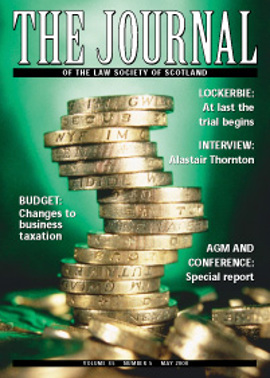Sport and the EU
The effect of Community law on sporting activities would perhaps not have been apparent for those involved at the institution of the Common Market. However, the ECJ made it clear in the Walrave and Koch case (C-36/74) in the 1970s and more recently in the Bosman case (C-415/93) that sport could be treated as an economic activity like any other and that organised sporting activities were subject to the same guarantees under Community law as were other economic activities. These two cases dealt with the fundamental freedom of workers to move around the Community. The ECJ has recently ruled again on regulations in sport relating to the freedom of movement for workers and also in relation to sportspersons availing themselves of their freedom to provide services in two cases dealing respectively with basketball and judo.
Economic activity
In the case of Christelle Deliège V Ligue Francophone de Judo et Disciplines ASBL (Joined cases C-51/96 and C-191/97), a Belgian judoka, who practised judo at an international level, challenged the Belgian federation-based system of selection of competitors for international competitions. The dispute concerned the rules laid down regarding the limit on the number of athletes from each national federation allowed to participate in each international tournament. Ms Deliège maintained that the Belgian federations had improperly frustrated her career development by not selecting her to participate in a variety of important competitions. She argued that, as a judoka, she was engaged in an economic activity and that her freedom to provide services as an athlete had to be protected by the courts.
On reference to the European Court of Justice, the court pointed out, first of all, that the judgment in the Bosman case made it clear that rules for the organisation of sports must comply with Community law in so far as sport constitutes an economic activity within the meaning of the Treaty. The Court went on to say that, in judging whether a sport was an economic activity, although it was relevant to take into account the fact that a sports association or federation classifies its members as “amateur” athletes, this does not in itself mean that those members do not engage in economic activities. The Court considered that sporting activities, and in particular the participation of high-ranking athletes in international competitions, are capable of involving the provision of a number of separate, but closely related, services. Athletes taking part in a sports event which the public may attend, which television broadcasters may retransmit, and which may be of interest to advertisers and sponsors, provide the basis for services of an economic nature.
Selection rules
However, on the subject of selection rules, the Court found that, although these rules inevitably have the effect of limiting the number of participants in a tournament, this is inherent in the conduct of international sports. Such rules may not, therefore, in themselves be regarded as constituting a restriction on the freedom to provide services. Moreover, in this case the selection rules applied both to competitions organised within the Community and to those taking place outside it and involved both nationals of Member States and those of non-member countries. The national federations are therefore entitled to lay down appropriate rules and to make selections.
Right of free movement
In Jyri Lehtonen and Others v Fédération Royale Belge des Sociétés de Basket-ball ASBL (C-176/96), the ECJ ruled on the application of EU competition rules to the transfer of professional basketball players from one Member State to another. Mr Lehtonen was a Finnish basketball player whose Belgian club was penalised for fielding him in the Belgian basketball championship in 1996 on the grounds that the International Basketball Federation rules on transfers of players within Europe had been breached. These rules prohibit clubs in Europe fielding in national championships foreign players who have played in another country in Europe, if they have been transferred after 28 February. After that date it is still possible, however, for players from non-European clubs to be transferred and to play. Mr Lehtonen had been transferred to his club after that date.
The club considered that Mr Lehtonen was a worker in terms of the Treaty and that the rules constituted an obstacle to his right of free movement. The case went before the Tribunal de Premiere Instance in Brussels which referred the case to the European Court of Justice asking for a ruling on whether rules of a sports federation which prohibit a club from fielding a player in a competition if he has been engaged after a specified date are compatible with the principle of freedom of movement for workers.
As in the Deliège case, the ECJ reiterated the rule in Bosman that sport is subject to Community law to the extent that it constitutes an economic activity within the meaning of the Treaty. In those circumstances, rules of organisation of sport, including those made by sports federations, must comply with Community law. The Court held that the rules preventing Belgian clubs from fielding basketball players from other Member States where they have been transferred after a specified date constitute an obstacle to the freedom of movement for workers. However, the Court went on to state that this may he justified on non-economic grounds - the setting of transfer deadlines may be intended to avoid distortion of competitions - if it does not go beyond what is necessary for achieving that aim. It is for the national court to ascertain whether that last condition is satisfied.
In this issue
- President's report
- Students' concern over competence course
- President's address
- Inverness a great success
- Why we must listen to our critics
- US presence makes trial far from "normal"
- Children's hearings system and European Convention
- Budget 2000
- Interview: Alastair Thornton
- Sport and the EU
- Risk themes from the conference
- Helping hand as claims rise






